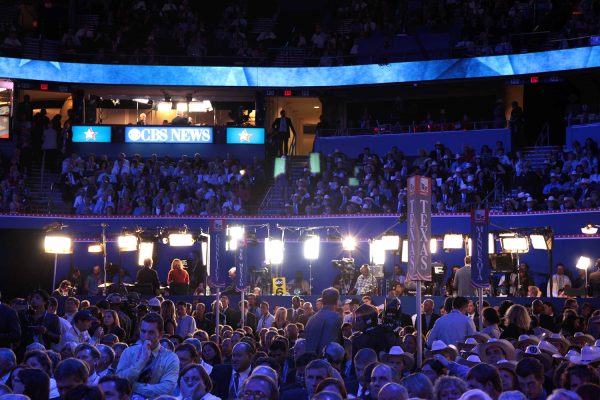
It’s every political junkie’s dream: a contested convention. When no American presidential candidate wins a majority of the delegates in state-by-state contests before the party’s convention in the summer, the assembly — normally stage-managed for television — will have to go through as many voting rounds as it takes to elect a nominee. Imagine the theater!
It hasn’t happened in almost seventy years, and for good reason.
The last time Democrats needed to “broker” their convention was in 1952. The last time Republicans had one was in 1948. At both times, the parties went on to lose the general election. The spectacle of a party struggling to find a presidential candidate doesn’t inspire much confidence in voters that they’ve made the right choice.
Could the same happen to Democrats this year?
Brokered? Contested? Open?
First, a word on terminology.
Jonathan Bernstein insists we should refer to contested, open or deadlocked conventions, not brokered. “There are no brokers.”
In the past, party bosses would put their heads together at the convention and agree on a candidate. Such bosses don’t exist anymore.
But the definition of “brokered” can change. There are no brokers, but if two or three center-left candidates enter the Democratic convention with a majority of the delegates between them, they could broker a deal to keep the nomination away from Bernie Sanders.
How likely is it to happen?
Sanders is on track to win a plurality of the delegates, but if several other candidates stay in the race he would struggle to win a majority. Sanders has yet to win more than 26 percent support in any state. Candidates need 15 percent to qualify for a share of the delegates.
Based on the results of the Iowa caucuses and New Hampshire primary, as well as recent polls, FiveThirtyEight gives Sanders a two-in-five chance of winning a majority of the delegates. The second most likely outcome: a contested convention. FiveThirtyEight believes the odds are one-in-three.
Betting markets give Michael Bloomberg a similar shot at the nomination. Not because he is likely to win outright, but because he could emerge as the consensus candidate from an open convention.
Ronald Brownstein argues in The Atlantic that none of the other candidates have demonstrated an ability to build a broad coalition. Joe Biden has almost no support from young voters. Sanders has almost no support from older voters. Pete Buttigieg has almost no support from nonwhite voters. Elizabeth Warren has little support from non-college graduates.
Bloomberg is making inroads (PDF) with black voters, who make up the majority of the Democratic primary electorate in many Southern states, but the billionaire is toxic to Sanders’ supporters.
March will be crucial
Chris Cillizza and Sean Trende both argue much hinges on Super Tuesday, March 3, when fifteen states and territories vote. A third of the pledged delegates will be allocated that day. Another third will be allocated later in March.
(In addition to pledged delegates, party leaders and elected politicians are automatically seated at the convention, but they cannot vote on the first ballot if the outcome is uncertain.)
Bernstein doubts there won’t be presumptive nominee by the end of March. If the lower-polling candidates have dropped out at that point, the final contests could become “de facto winner-take-all events,” which could help someone reach a majority quickly.
Would a contested convention hurt Democrats?
Bernstein and Trende think so.
The former points out that, in the absence of brokers, the almost 4,000 delegates could behave unpredictably. Some will be loyal to the candidate who won them. Others, such as local and state party leaders, who have the best interest of the party as a whole at heart, could be more pragmatic. Others yet may be willing to do a deal that is favorable to their state.
If they couldn’t reach a decision quickly, all sorts of basic logistical problems might get out of hand very quickly. Not to mention tempers boiling over and serious rifts opening up.
Trende similarly warns that a contested convention could “smash the Democratic coalition to splinters.” But he can also imagine it producing a consensus nominee and strengthening the Democratic Party.
